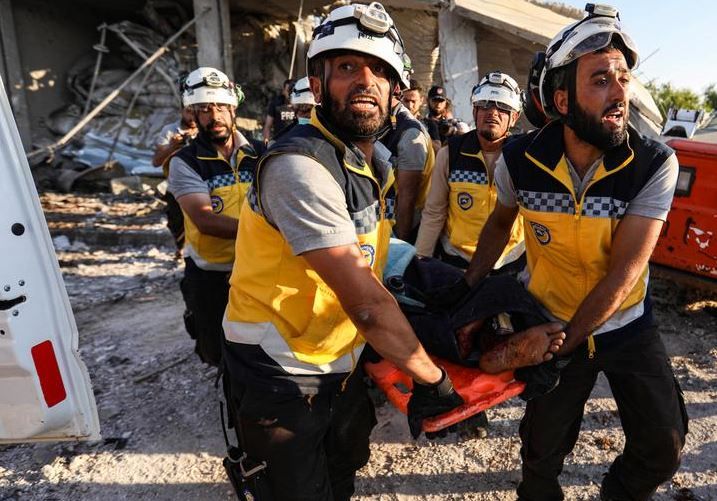For the past twelve years, Syria has been torn apart by a lethal combination of civil war and tribal hostilities. To outsiders, there seems to be only villains and refugees.
But there are heroes. Enter the White Helmets: ordinary Syrians – teachers, tailors, builders, doctors – who didn’t flee the country and didn’t take up arms; instead, they return day after day to the scene of some of the worst carnage on the planet. Known by the distinctive headgear they wear, the White Helmets sift through the rubble of Aleppo looking for survivors. They treat the wounded, work tirelessly to repair and maintain water and electricity, seek to re-unite families separated by the bombings and occupations, and bury the dead.

The White Helmets grew out of a disparate set of local groups scattered throughout Syria. They number more than 3,000 volunteers in rebel-held areas across the country. They are all civilians – the White Helmets’ code of conduct forbids their taking up arms. Members are trained in how to search collapsed buildings, how to put out fires, how to handle unexploded bombs, what to do in a chemical attack.
Since the White Helmets organized in early 2013, White Helmet units have saved and rescued 60,000 of their fellow Syrians. One hundred forty-one White Helmets have been killed while serving.
A war defined by impossible choices and implacable hatreds has also produced a model of heroism that reflects the best of humanity: ordinary people who rush in to help after every attack and bombing that devastates their neighbours and homeland. Their credo is a single verse from the Quran: “Whoever saves one life, saves humanity.”
A prophet is “one who proclaims” – and the White Helmets are “prophets” in the truest sense of the word. In their selfless, dangerous work, the ordinary Syrians who wear the White Helmets “proclaim” the justice and mercy of God in the devastation of their homeland.
In the spirit of John the Baptizer, “prophets” make crooked roads straight and rocky paths level by their compassionate generosity and humble giving. In our Advent care, we “proclaim” (the Greek word for “prophet”) the presence of God in our midst in our simple and ordinary acts of compassion, mercy and justice. Putting on our own versions of “camel hair” and strapping on our own “belts” of “leather,” may we be about the work of proclaiming and building the Kingdom of God; in the offering of our own “locusts and wild honey,” may we be signs of God’s presence in this Advent of our lives.
In our own commitment to the moral and ethical principles that are of God, we can be no less prophets of God’s love and mercy in the Jordan banks of our homes, businesses and schools.